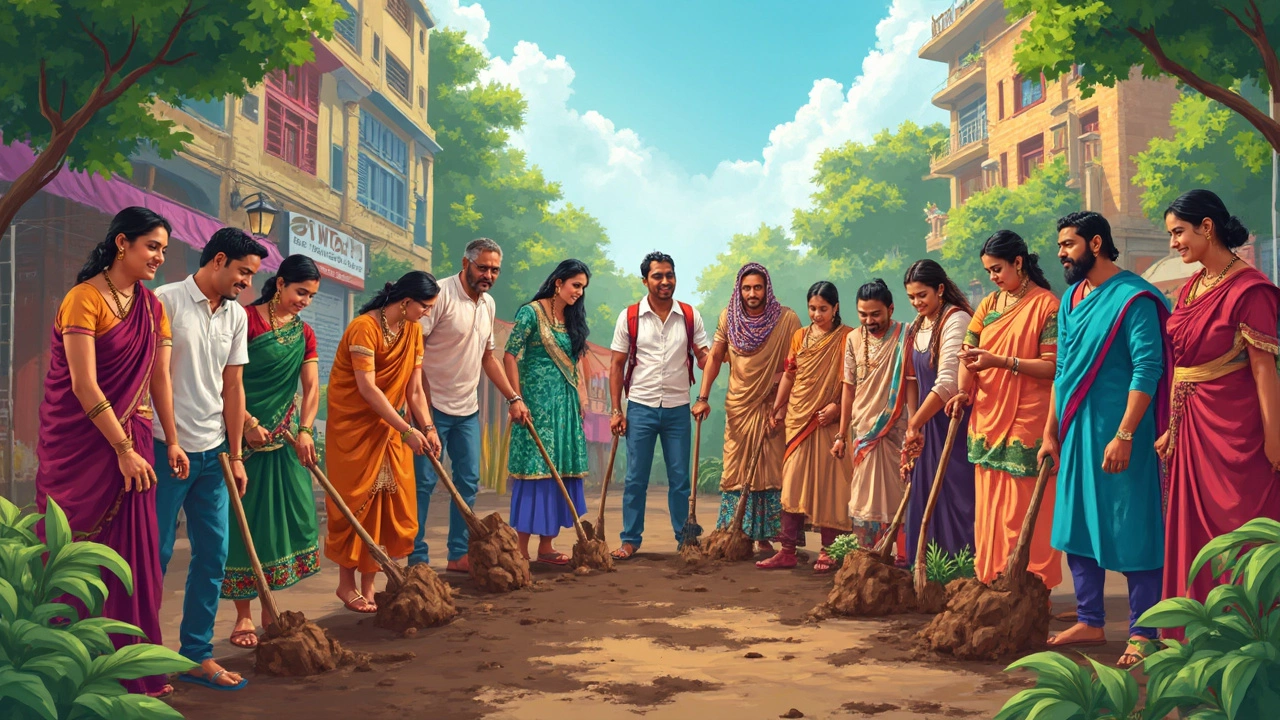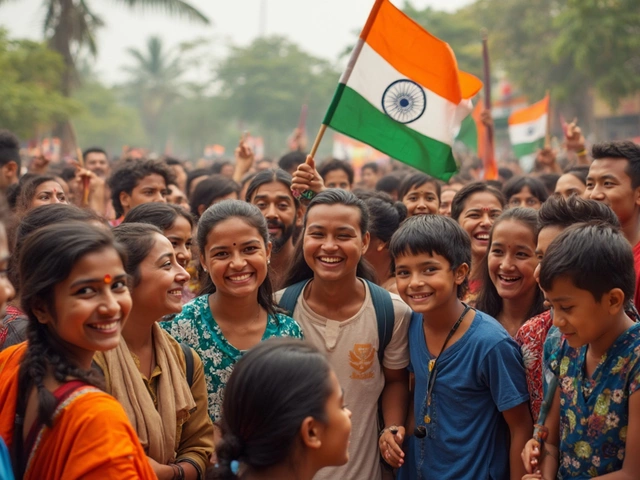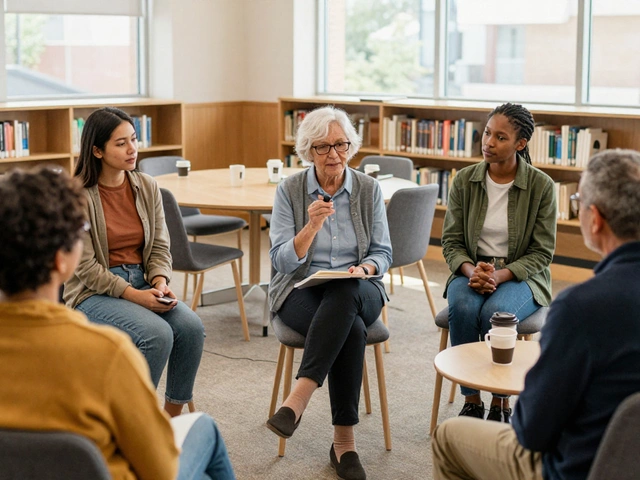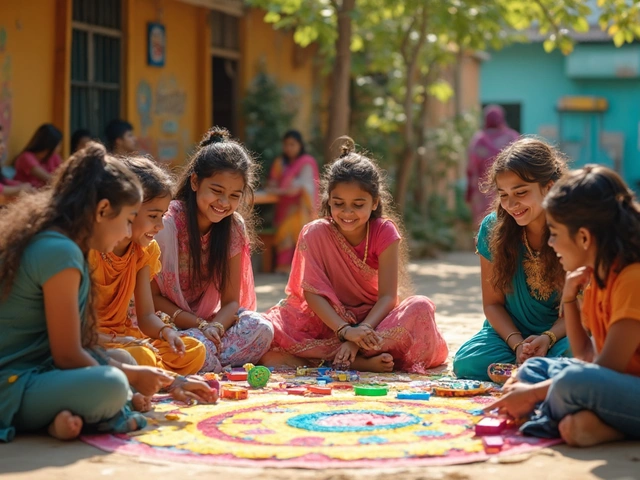Ever wondered what truly drives someone to volunteer? These folks are often seen as the backbone of many communities, giving their time and energy to causes they believe in. But what exactly makes them tick?
Volunteers are the lifelines behind countless projects, from local cleanup crews to those who help out at animal shelters or food banks. They don't do it for the money; often there isn’t any. Instead, their payment comes in the form of fulfillment and the satisfaction of making a real difference.
You might think of volunteering as something only retirees or students do, but it's a gig open to anyone with a bit of time and a lot of heart. So, if you're considering diving into volunteer work, it isn't just about lending a hand—it's about learning new skills, meeting new people, and becoming part of something bigger. Intrigued? Let's see what's next.
Defining the Volunteer
A volunteer is someone who offers their time and skills to help others without expecting financial compensation. It seems simple, but this role can vary widely depending on the needs of the community or organization they assist. Volunteers are found everywhere, from local libraries and hospitals to international disaster relief efforts.
What's fascinating is the variety of roles a volunteer can take on. They might handle administrative tasks, offer professional skills like teaching or counseling, or even provide physical labor, such as building homes or planting trees. Essentially, if there's something that needs doing, there's a volunteering opportunity to match.
Now, why do people volunteer? The motives are as varied as the tasks they take on. Some folks are driven by a personal connection to a cause, while others look to gain experience or meet new people. For many, it's about giving back and making a tangible impact in their community or even globally. It's this diverse range of motivations and actions that truly defines a volunteer.
Interestingly, a study by New Zealand's Department of Internal Affairs found that about 21% of adults volunteered for an organization in 2024. That's almost one in five people lending a helping hand in some way! Community service is alive and kicking, and perhaps more important now than ever. So, if you're thinking about becoming part of this impactful group, you're not alone.
Why People Volunteer
Have you ever wondered what it is that motivates folks to dive into volunteering? There isn’t a one-size-fits-all answer, but there are some pretty consistent reasons why people get involved and stick with it. Let’s break it down.
First off, there's that feel-good factor. Many volunteers talk about the personal satisfaction they get from lending a helping hand. Doing good makes you feel good—it’s as simple as that. According to a study published by the Corporation for National and Community Service, a whopping 96% of volunteers feel happier about themselves after volunteering.
"Volunteering is at the very core of being a human. No one has made it through life without someone else’s help." — Heather French Henry, Commissioner of the Kentucky Department of Veterans Affairs.
Then there are the social perks. Volunteering is a great way to make new connections, build friendships, and expand your network. Whether you’re new in town or just looking to mix things up, it's like signing up for team-building exercises—without the awkward icebreakers!
Some folks dive into community service for the chance to learn or hone skills. Imagine picking up leadership abilities or mastering event organization while also doing something meaningful. Employers often look for these skills, so it’s a win-win situation.
And let’s not forget about the physical benefits. Did you know that volunteering has been associated with improved physical health, particularly in older adults? Studies, like one from Harvard Health, suggest that those who volunteer regularly experience less stress and may even live longer.
Last, but definitely not least, people volunteer to make a tangible impact. It's one thing to talk about changing the world, but it's another to actually do something about it. Whether it's cleaning a beach or tutoring a child, these actions add up to real change.

The Impact of Volunteering
Volunteering isn't just about giving; it has a ripple effect of positivity touching the individual, the community, and even the world at large. For starters, volunteers often report feeling more connected to their community, developing stronger social networks, and even gaining a sense of purpose.
According to a study by the Corporation for National and Community Service, 50% of volunteers say that they feel healthier and more energetic. It's not just about feeling better physically, but mentally too. Many find that volunteering helps reduce stress and combat depression, perhaps because of the social interactions and sense of accomplishment it brings.
"Volunteering is the ultimate exercise in democracy. You vote in elections once a year, but when you volunteer, you vote every day about the kind of community you want to live in," said author Marjorie Moore.
The impact on the community is undeniable. In New Zealand alone, volunteers contribute more than 157 million hours of unpaid work annually. This not only supports local services but also builds a sense of solidarity. It can transform a place, reduce crime rates, enhance cultural life, and drive economic growth.
- Strengthening Communities: Volunteers play crucial roles in educational programs, health initiatives, and environmental conservation.
- Skill Development: Many volunteers gain hands-on experience, learning skills like leadership, project management, and interpersonal communication.
For those inspired by these benefits and the idea of being a volunteer, there are myriad ways to get involved. Whether you're keen on community service or have a passion for a specific cause, the impact you can make is enormous and immensely rewarding.
How to Get Involved
Alright, so you're ready to jump into the world of volunteering but aren't sure where to start? No worries! Getting involved is easier than you might think. Whether you want to give back locally or have your sights set on international volunteering opportunities, there's something for everyone.
First, ask yourself what causes resonate with you. Is it helping the environment, working with kids, supporting the elderly, or maybe lending a hand at your local food bank? Knowing your interests will point you towards the right place.
Once you’ve got that figured out, here’s a step-by-step guide to finding the perfect volunteering gig:
- Research: Start by checking out local charities or non-profit organizations online. Websites like VolunteerMatch or Idealist list opportunities based on your location and interests.
- Reach Out: Contact organizations directly to learn about their current needs. Most places are thrilled to hear from eager volunteers!
- Start Small: If you're unsure, begin with a one-time event. This will give you a taste without a long-term commitment.
- Gather Recommendations: Ask friends or family if they know of any volunteering spots that are both fun and impactful.
- Be Proactive: Don’t wait for the perfect opportunity to drop into your lap. Sometimes lending a helping hand means taking the first step.
Now, let's sprinkle in a bit of perspective. Did you know that in 2024, about 63 million Americans reported volunteering at least once, according to a study by the Corporation for National and Community Service? That's a massive community making a difference together!
So, what are you waiting for? Dive in, start making connections, and see where your desire to help can lead you. Every little bit helps, and who knows—you might just find your life's passion along the way.






